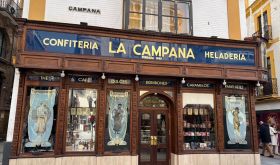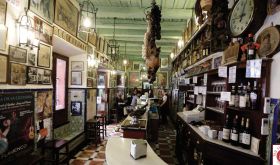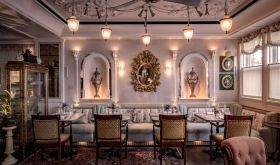For restaurants Saturday nights are very different from the other nights of the week, and not just because they can be the busiest.
I can still recall, as owner of L’Escargot in Soho during the 1980’s, Saturday evenings’ presenting two particular management challenges, both the result of the fact that my restaurant, like many others today, was not open for Saturday lunch.
This led initially to a sense of anxiety that was only relieved when all the chefs due to work that night finally arrived. Chefs are usually divided into two brigades that work alternately one week at lunch and the next in the evenings. If a chef doesn’t turn up one week night then it is possible to negotiate with someone working at lunch and persuade them to stay on for a ‘double shift’. On Saturday nights there is no-one spare in the kitchen to call on and if a replacement cannot be induced to come in over the phone this can mean curtailing reservations to maintain standards.
The second is that because the kitchen and the restaurant had been empty during the day, it always seemed to be more difficult to motivate my team. There are fewer early evening bookings because customers won’t be coming in directly from their offices and there isn’t the same pre-theatre business as many theatre-goers go directly from home. It’s a quieter, slower start even though later on it can get extremely busy as Saturday night leads into Sunday morning.
Quiet was certainly the appropriate description for The Greenhouse in Mayfair one wet Saturday evening recently as we walked in for a 7pm reservation before the cinema. The only other customers were two American men, one pacing up and down outside on his mobile. The room would not fill up for another 45 minutes at least. But as Lyons-born chef Antonin Bonnet produced the most exciting, ambitious and well executed food I have enjoyed in London this year, I wondered how restaurateurs in other major cities found Saturday nights.
For Mark Williamson at Maceo in Paris Saturday night is distinguished by more out of towners and fewer business dinners – a phenomenon that was reported by everyone I spoke to – and more tourists and couples on dates. “People plan their weekend dining” he explained, “and book well in advance, but we do find that they’re more unreliable and forget to cancel. Saturdays are obviously the night for people to let their hair down so we sell more champagne by the glass. It’s very busy most of the year but it tends to be quieter when Parisians start to go away for the weekend.”
In New York recently the two General Managers I contacted, Will Guidara at Eleven Madison Park and Colum Sheehan at Babbo, which is only open for dinner, reported that their Saturday nights are different too.
“We’re definitely busier on Saturday nights but it’s with a very different set of customers,” commented Guidara. “We see a lot more customers for the first time spending their own money rather than the company’s and as a result we tend to sell fewer of our tasting menus, which means lower average bills. But there are always more celebrations on a Saturday and that, combined with seeing so many new faces, makes it a fun night to be working.”
While Sheehan reconfirmed that Saturdays feel more festive and happy, he also felt that they are somewhat easier to manage. “Our guests are always more punctual throughout the night on Saturdays than they are during the week so from our pre-theatre guests onwards, the whole evening has a smoother feel to it. And that in turn makes it easier to look after the next set of customers.”
The preponderance of first-time customers is reflected not just in the faces and the time-keeping but also in what customers on a Saturday night order, as Stuart Brioza the chef at Rubicon in San Francisco reported. “It’s a night of higher expectations and lower sales and generally a night when customers choose the ‘safer’ dishes on the menu. So for example we will sell more crab, halibut and beef rather than the sardines, sweetbreads and tongue we’ll sell the rest of the week. We do sell more tasting menus and wine pairings on a Saturday night but as it’s the night when more customers come from home they take more advantage of our ‘bring their own wine policy’ and pay corkage.”
Quite how different customers can be on a Saturday, and the particular attractions they can bring to a restaurant, were highlighted after my meal there by Jean-Marie Moirada, the General Manager at The Greenhouse. “We see more tourists on a Saturday who come to us recommended by the hotel concierges. And while we, like so many in Mayfair, rely during the week on our business clientele, I would say the restaurant always seems more colourful on a Saturday night. There are invariably more women and fewer grey or black suits in the restaurant than on weeknights. As a result, Saturday nights always seems more relaxed, laid back and glamorous.”
The Greenhouse, London, www.thegreenhouserestaurant.co.uk
Maceo, Paris, www.maceorestaurant.com
Eleven Madison Park, New York, www.elevenmadisonpark.com
Rubicon, San Francisco, www.sfrubicon.com












